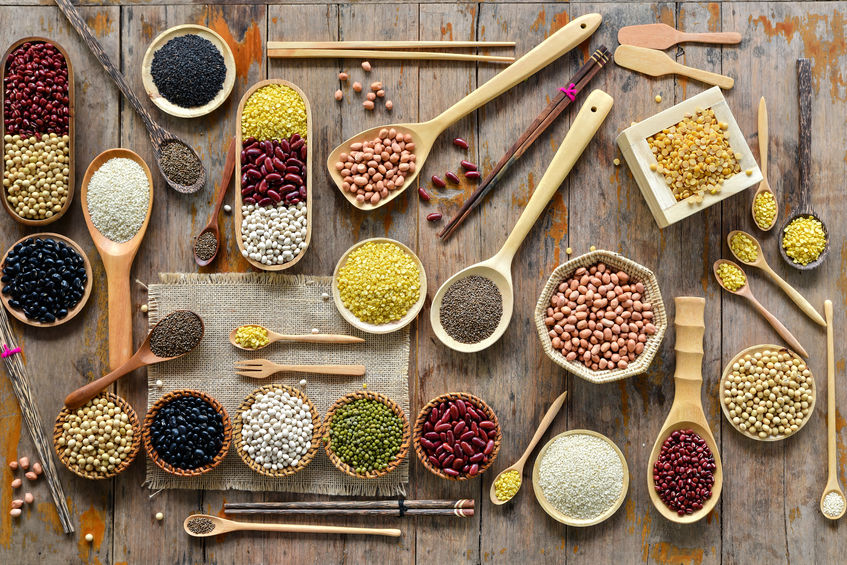Vegan Protein

Protein is Everywhere
A vegan diet can meet recommendations for protein intake regardless of age, gender, or level of physical activity. The key is adequate caloric intake and a varied diet. Protein-packed vegan foods include legumes (beans, peas, chickpeas, fava beans, lupin beans, and lentils), soy and soy products (tofu, edamame, tempeh, TVP, soy milk and yogurt, etc.), seitan, and quinoa. Nuts and seeds, grains, and vegetables also provide varying amounts of protein.
Is it enough?
Healthy adults require approximately 0.8 grams of protein per kilogram of body weight each day, regardless of gender. This means that a man weighing 70 kg (154 lbs) needs to consume approximately 60 grams (~2 oz) of protein per day (70 x 0.8 = 60). Meanwhile, a woman weighing 60 kg (132 lbs) requires 48 grams (1.7 oz). Athletes require more protein, but with proper planning, they can also easily obtain all the protein they need from a vegan diet.
Examples of average amounts of protein in vegan foods:
- Legumes: 15-20 g (~0.5-0.7 oz) per cooked cup
- Tofu: 10-15 g (~0.5 oz) per 100 g (3.5 oz)
- TVP: 50 g (1.7 oz) per 100 g dry (3.5 oz)
- Seitan: 22-25 g (~0.8 oz) per 100 gr (3.5 oz)
- Nuts and seeds: 15-20 g (~0.5-0.7 oz) per 100 gr (3.5 oz)
- Grains: 5 g (~0.2 oz) per cup
- Bread: 5 gr (~0.2 oz)/2 slices
For example, one cup of cooked lentils contains the same amount of protein as three eggs (18 grams, or 0.6 oz) and provides 30% of the daily protein requirements for men, respectively 37% for women.
Is it sufficient?
The quality of protein obtained from a balanced vegan diet is suitable for all bodily needs. You can get high biological value proteins (which provide all the essential amino acids in the right proportions) from soy, soy products, legumes, and grains (these do not necessarily need to be eaten during the same meal).
Protein with added benefits?
In addition to providing suitable amounts of protein, vegan protein-packed foods come with added benefits. They are low in fat and sodium and high in fiber, minerals, vitamins, and phytochemicals. A plant-based diet will not only meet your daily protein needs but will also lower your intake of unhealthy elements found in animal protein and may also increase your intake of healthy nutrients found only in plant foods, such as fiber and phytochemicals.
More like this:
Vegan Activism to Make A Difference
Becoming vegan is a powerful decision, but for many it’s just the first step in making an even bigger difference for animals, our collective health, and the health of the planet. Through vegan activism, we can multiply our impact and inspire positive change.
So how can we effectively change the world through vegan activism? From bake sales, to mentoring, to direct action, there’s a method to suit everyone!
How to add more leafy green veggies to your diet
Leafy green veggies help us thrive, containing important antioxidants, fiber and nutrients. We all need to add more leafy greens to our diet. But how do we avoid bland, mushy veg and make something fun, creative and delicious?
30 Gift Ideas for Your Vegan Loved Ones
Are you on the lookout for that special gift for a family member or friend that’s vegan? You’re in the right place! Check out our list of 30 gift ideas for you to choose from when that next important day is coming up, whether it’s Christmas, a birthday, or just a random Thursday.